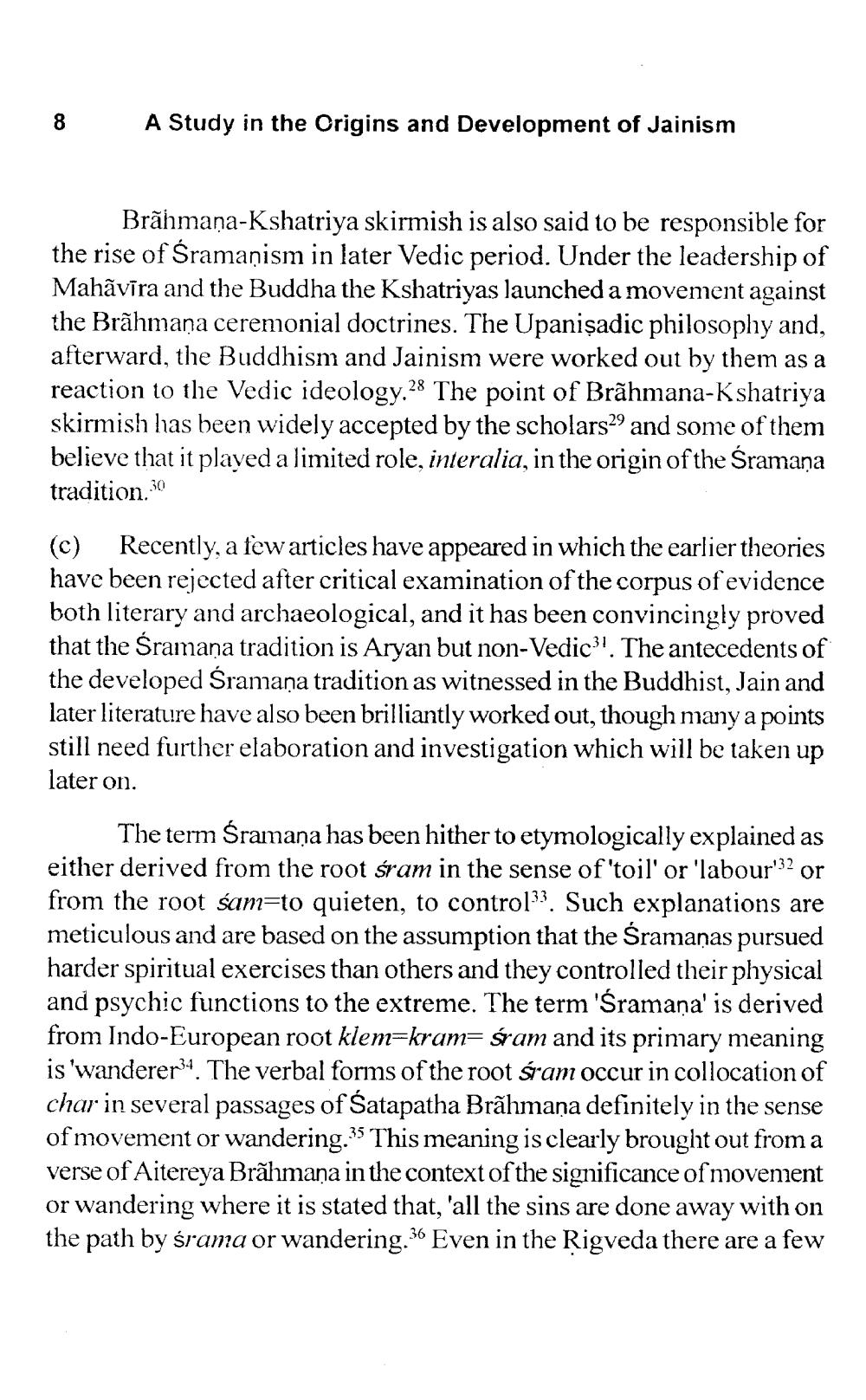________________
8
A Study in the Origins and Development of Jainism
Brahmaṇa-Kshatriya skirmish is also said to be responsible for the rise of Śramanism in later Vedic period. Under the leadership of Mahāvīra and the Buddha the Kshatriyas launched a movement against the Brahmaṇa ceremonial doctrines. The Upanisadic philosophy and, afterward, the Buddhism and Jainism were worked out by them as a reaction to the Vedic ideology.28 The point of Brahmana-Kshatriya skirmish has been widely accepted by the scholars29 and some of them believe that it played a limited role, interalia, in the origin of the Śramaṇa tradition.30
(c)
Recently, a few articles have appeared in which the earlier theories have been rejected after critical examination of the corpus of evidence both literary and archaeological, and it has been convincingly proved that the Śramana tradition is Aryan but non-Vedic31. The antecedents of the developed Śramaņa tradition as witnessed in the Buddhist, Jain and later literature have also been brilliantly worked out, though many a points still need further elaboration and investigation which will be taken up later on.
The term Śramana has been hither to etymologically explained as either derived from the root sram in the sense of 'toil' or 'labour'32 or from the root sam to quieten, to control33. Such explanations are meticulous and are based on the assumption that the Śramaņas pursued harder spiritual exercises than others and they controlled their physical and psychic functions to the extreme. The term 'Śramana' is derived from Indo-European root klem-kram= śram and its primary meaning is 'wanderer34. The verbal forms of the root áram occur in collocation of char in several passages of Śatapatha Brahmaṇa definitely in the sense of movement or wandering.35 This meaning is clearly brought out from a verse of Aitereya Brahmaṇa in the context of the significance of movement or wandering where it is stated that, 'all the sins are done away with on the path by śrama or wandering.36 Even in the Rigveda there are a few




